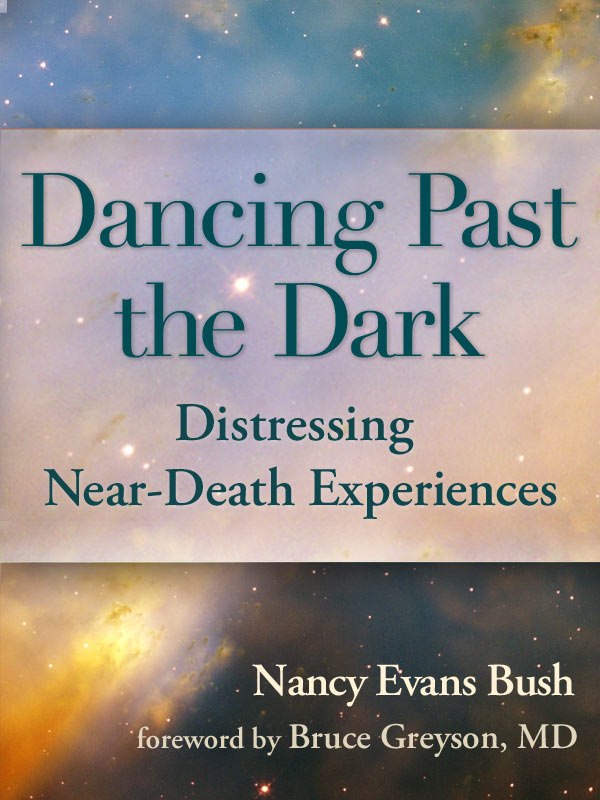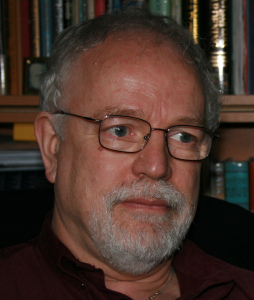 The study of NDEs took a significant turn with Nancy Evans Bush's important work, Dancing Past the Dark: Distressing Near Death Experiences. In a recent series of posts, Peter Hulme reviews this book in detail and provides an excellent summary of some of the important components of this book.
The study of NDEs took a significant turn with Nancy Evans Bush's important work, Dancing Past the Dark: Distressing Near Death Experiences. In a recent series of posts, Peter Hulme reviews this book in detail and provides an excellent summary of some of the important components of this book.
As Hulme states, "...of the 354 near-death experiences ... between the years 1975 and 2005 ... there were no unpleasant reports." Dancing Past the Dark introduced the topic of distressing NDEs with an insightful discussion of the components of these experiences, methods for interpreting them, and ways to help people to integrate the experiences and move on with their lives.
In his first posting, Hulme provides an introduction to distressing NDEs and discusses why it is important to study these experiences.
 Peter Hulme is a teacher, psychologist, and now a writer who has been producing works to help to define a map by which to live and to provide insights into our lives. His summary of Dancing in the Dark provides a complete review of the major components of the book while recognizing that no review of such an important topic can provide the type of insight garnered by reading the entire work in its original form.
Peter Hulme is a teacher, psychologist, and now a writer who has been producing works to help to define a map by which to live and to provide insights into our lives. His summary of Dancing in the Dark provides a complete review of the major components of the book while recognizing that no review of such an important topic can provide the type of insight garnered by reading the entire work in its original form.
Hulme describes distressing NDEs by noting that "...the significance of these experiences is precisely because they do not conform to our ideas of a conventional hell at all and yet their impact upon those who experienced them and the reaction of those they disclosed the experiences to is completely disproportionate to the relative blankness of the visual canvas."
 He describes that it was difficult to gather the research data for this book because so many people who have distressing NDEs are either embarrassed or afraid to discuss their experiences. Dancing Past the Dark provides insight into distressing NDEs and helps people to realize that they are not alone in their experiences. Hulme provides a wonderful summary of the experiences, and he discusses the different ways that these experiences can be interpreted. Finally, Hume analyzes Nancy Evans Bush's discussions of how these events can be understood in the context of daily lives, psychology, religious beliefs, and our relationship to the world.
He describes that it was difficult to gather the research data for this book because so many people who have distressing NDEs are either embarrassed or afraid to discuss their experiences. Dancing Past the Dark provides insight into distressing NDEs and helps people to realize that they are not alone in their experiences. Hulme provides a wonderful summary of the experiences, and he discusses the different ways that these experiences can be interpreted. Finally, Hume analyzes Nancy Evans Bush's discussions of how these events can be understood in the context of daily lives, psychology, religious beliefs, and our relationship to the world.
You can see the complete, 3-part posting at the following links:
- Post 1: Summarizes what distressing NDEs are and what they mean
- Post 2: Understanding these experiences in a cultural and religious context
- Post 3: The Transition and Paths Forward after having a distressing NDE